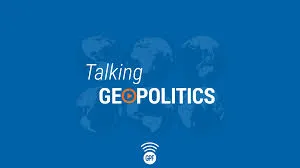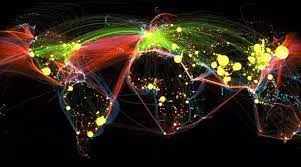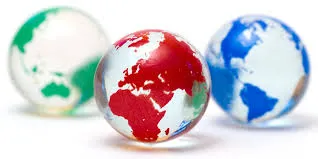
Geopolitical futures are the potential outcomes of the current political, economic, environmental, and social trends that are shaping the world today. As the global economy shifts, nations grapple with new security threats, and technology advances, understanding the implications of these changes and the possible futures they create is essential.
This introduction will provide an overview of the major geopolitical trends and their potential implications for the future. It will also discuss how these trends are connected to one another and how they can be managed to create a more secure and prosperous global future.
Exploring the Impact of Geopolitics on Global Futures
Geopolitics is a field of study that examines the power relationships between nations and other entities, such as economic and cultural forces, in order to understand how these relationships shape the world. As such, it is vitally important to consider the impact of geopolitics on global futures.
In the 21st century, geopolitics increasingly influences the decisions of governments, businesses, and individuals. It has become a key factor in the formulation of global economic and security policies, in the establishment of international trade agreements, and even in the selection of allies and rivals.
The influence of geopolitics is widely recognized in the international arena. For example, countries with strong military and economic power are often better able to achieve their objectives than those with weaker capabilities. Additionally, geopolitical tensions between two countries can lead to military conflict, economic sanctions, and other forms of retaliation.
On the other hand, geopolitics can also have positive effects on global futures. For example, it can create opportunities for cooperation between nations, particularly in the areas of trade and security. It can also help to promote positive outcomes, such as the reduction of poverty and inequality, through international development projects.

Ultimately, while the influence of geopolitics on global futures is undeniable, its exact effects are often difficult to anticipate. However, by staying aware of current geopolitical trends and working to ensure cooperation between nations, it is possible to create a more positive and secure global future.
What Does the Future Hold for Emerging Geopolitical Alliances?
The emergence of new geopolitical alliances has the potential to bring about significant changes on the global stage. In the coming years, the emergence of new alliances is likely to be driven by a range of factors, including shifting economic and political power, increasing interconnectivity between nations, and the need to combat global threats.
As the world continues to become more interconnected, it is likely that new alliances will be formed between previously disparate nations. These alliances may be formed for a variety of reasons, such as to promote economic development, to facilitate trade, or to counter security threats. The alliance of the United States, Canada, and Mexico, for example, was driven in part by the need to combat terrorism and the drug trade. Similarly, the recent trilateral partnership between India, the United States, and Japan was formed in part to increase economic cooperation throughout the region.
In the future, new geopolitical alliances may also be driven by the need to combat issues such as climate change, pandemics, and other global threats. In the face of these challenges, nations may be forced to cooperate more closely in order to successfully address them. For example, the Paris Agreement, which was signed in 2015, is a multinational agreement that commits all signatories to reducing their emissions in order to combat the effects of climate change.

Ultimately, the future of emerging geopolitical alliances is uncertain. However, it is likely that new alliances will continue to emerge as nations grapple with the numerous challenges of an increasingly interconnected world. As these alliances continue to be formed, it is important that they be based on mutual respect and collaboration in order to ensure that their goals are achieved.
Unpacking the Intersection of Geopolitics and Climate Change
The intersection of geopolitics and climate change has become increasingly important in recent years. As global temperatures continue to rise, so too does the need for nations to collaborate and create meaningful solutions. This intersection of geopolitics and climate change has been viewed through various lenses, including economics, security, and public health.
Economically, the effects of climate change are already being felt, with many countries experiencing a decrease in agricultural production due to droughts, floods, and other weather-related disasters. This has caused food insecurity in many regions, and it is likely to worsen in the coming years as temperatures continue to rise. In addition, rising sea levels are threatening coastal areas, and the cost of adapting to this change is projected to be immense.
From a security standpoint, climate change has the potential to exacerbate existing conflicts between nations and increase the risk of new conflicts. This is especially true in areas where resources are scarce, as competition for limited resources can lead to violence. Additionally, climate-induced migration and displacement can lead to political unrest, as populations move across borders in search of safety and resources.

The intersection of geopolitics and climate change is a complex issue, and it is essential that nations work together to find meaningful solutions. This means that governments must prioritize climate action, and that they must also address the economic, security, and public health concerns associated with climate change. Only then will we be able to mitigate the effects of climate change and create a more sustainable future.
How Will Technology Shape Geopolitical Dynamics in the 21st Century?
Technology has already had a profound influence in the geopolitical dynamics of the 21st century, and this trend is likely to continue. By providing new and powerful tools for communication, collaboration, and data analysis, technology has enabled governments, businesses, and citizens to interact in ways not previously possible. This has facilitated the development of new economic and political relationships between countries, and has increased the potential for international cooperation.

Technology has also helped to reduce the costs of conducting international trade and to increase the speed of data transmission. This has allowed countries to make rapid decisions based on up-to-date information, and has enabled the emergence of new markets and economic opportunities. Furthermore, new digital technologies have made it easier for people to collaborate across borders, enabling remote work, shared resources, and the exchange of ideas.
In summary, the development of digital technologies has had both positive and negative effects on the geopolitical dynamics of the 21st century. Technology has enabled unprecedented levels of collaboration and economic development, while at the same time increasing the potential for disruption and instability. It is therefore essential that governments take steps to ensure that technology is used responsibly, and that the rights of individuals are protected.
Navigating the Political Risks of International Trade in an Era of Volatile Geopolitics
In an era of volatile geopolitics, navigating the political risks of international trade is essential for businesses seeking to expand their operations internationally. Political risk can take many forms, from government policies that limit or restrict access to foreign markets to military conflict that disrupts trade routes. To mitigate these risks, businesses must be aware of the political environment in the countries in which they operate and develop strategic plans that can anticipate and adapt to changing geopolitical conditions.

Businesses must first assess the political risk of a particular country before entering into a trade agreement. This requires researching current and potential government policies, regulations, and geopolitical dynamics that could have an impact on their operations. Businesses should also consider how the country’s economic policies and socio-political environment could influence its stability and the potential for business disruptions.
By taking steps to understand the political risks associated with international trade and developing a comprehensive risk management strategy, businesses can protect themselves from the volatility of global geopolitics and ensure their operations remain resilient in the face of potential disruption.
The geopolitical future of the world remains uncertain. The rise of emerging powers, new technologies, and climate change are all creating an ever-changing landscape that will continue to shape the global balance of power. However, one thing is certain: the need for collaboration and cooperation between countries and regions is greater than ever if we are to create a future of peace, prosperity, and stability.






Leave a Reply